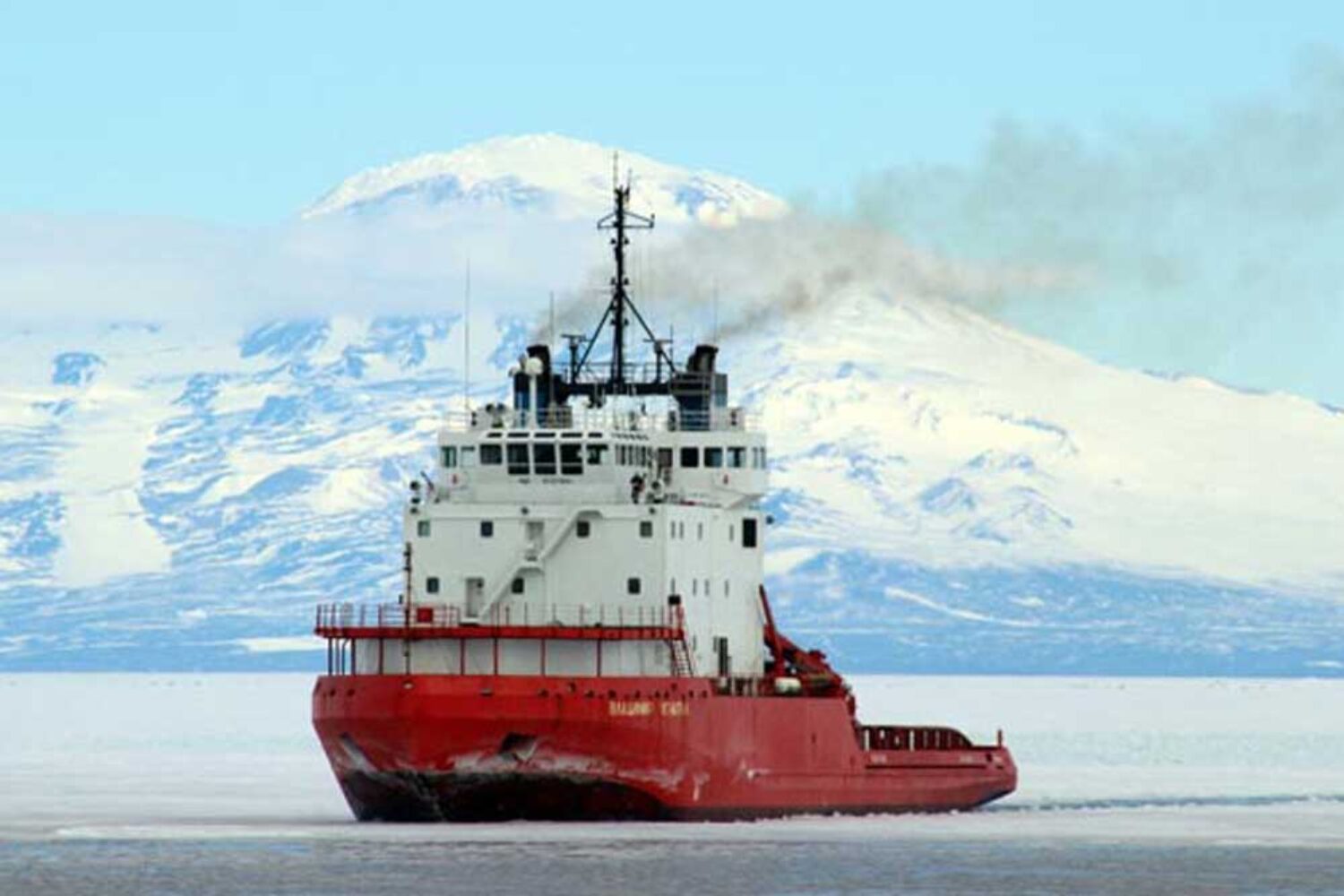The Russian state port authority Rosmorport has canceled the construction order for two new icebreakers, according to reports from Russian media and the Onega Shipyard.
The contract had been awarded in July 2021, before the attack on Ukraine. The ships were originally due to be delivered in 2024, but the deadline was later postponed to the end of 2026. This was due to sanctions and the failure of Western suppliers. Rosmorport is now demanding repayment of an advance payment of USD 116 million (around EUR 106 million).
Icebreaker project cannot be implemented without Western technology
The total volume of the order amounted to USD 200 million (approx. EUR 183 million). Two 95 m long ships with dual LNG and diesel propulsion were planned, which would be able to break ice 1.5 m thick. The project was developed by the Baltsudoproekt design office. The ships were to be deployed in the Baltic, the Arctic and northern Russian sea areas.
However, Onega Shipyard was unable to start work. Part of the production was outsourced to the Turkish Kuzey Star Shipyard, which was unable to start due to the sanctions. Central technology such as Azipod drives from a French ABB subsidiary and generators from Wärtsilä were also no longer available. Russia declared that it would develop its own alternatives. Experts doubt whether this is technically possible in a realistic timeframe, as the dependence on Western specialist technology remains high.
At the same time, the question arises as to why Russia is allowing new projects to fail despite the growing demand for icebreakers for the Arctic. Officially, the government refers to internal development programs. In reality, however, there is a lack of orders and replacement components, which is causing the modernization plan for the icebreaker fleet to stall. The Ministry of Transport had announced ten additional ships by 2030, but whether this target can be met remains questionable.
Jobs in the shipyards at risk
The economic consequences are tangible. The United Shipbuilding Corporation is already reporting massive cutbacks. The Khabarovsk shipyard in the Far East is particularly affected: of over 500 employees in 2023, 293 are left, 70% of whom are due to leave by October. In the end, only 90 employees will remain. Redundancies have also been announced at Wympel and other shipyards due to a lack of money for fleet modernization. Critics are asking whether the locational disadvantage of remote regions such as the Far East is driving up costs and making international competitiveness impossible.













